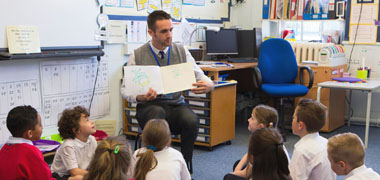
This role has a high level of AI exposure. While some human skills are required, many tasks could be automated or replaced by new technology.
Explore all careersA Cultural Advisor supports inclusive policies, cultural training, and communication to foster respectful engagement with diverse communities.
Get qualified to work as a Cultural Advisor with a course recognised across Australia. Speak to a training provider to learn more.






Browse occupations related to Cultural Advisor



Embarking on Cultural Advisor courses in Melbourne provides a significant opportunity to enhance your skills and knowledge in an essential field. Located in the vibrant and multicultural environment of Melbourne, these courses equip students with the capabilities needed to navigate the complexities of cultural engagement within communities. By enrolling in these programs, aspiring Cultural Advisors can gain insights into various cultural practices and advocacy strategies, which are vital in helping diverse communities and organisations connect and thrive.
For those interested in pursuing a career as a Cultural Advisor, it is beneficial to explore related fields such as Government and Public Sector courses. By understanding governance and policy-making, students can better support the needs of cultural communities across Melbourne. Additionally, the Arts and Culture sector also plays a crucial role in shaping the cultural narrative of the city, providing vast opportunities for Cultural Advisors to effect change and promote inclusivity.
Completing Cultural Advisor courses in Melbourne not only prepares learners for a specific role but opens doors to a variety of related career paths. Individuals may find themselves drawn to roles such as Library Assistant, where information management and community engagement play vital roles, or as a Museum Assistant, which offers a unique insight into cultural heritage. These options, among many others, showcase the diverse opportunities available for graduates in Melbourne's thriving cultural landscape.
Furthermore, those pursuing Cultural Advisor courses may also consider careers such as Curator or Librarian, both of which demand a rich understanding of cultural and historical context. For professionals keen on preserving knowledge and heritage, becoming an Archivist or Museum Curator can also serve as rewarding avenues to explore. The interconnected nature of these roles illustrates how Cultural Advisors can impact many areas within the community.
In conclusion, enrolling in Cultural Advisor courses in Melbourne positions students firmly within a rewarding and influential career landscape. By embracing the opportunities available in related fields and understanding the intricacies of cultural engagement, learners can prepare themselves for successful careers that promote understanding and appreciation of Australia’s rich cultural tapestry. For more information on how to become a Cultural Advisor and explore your options, visit here.